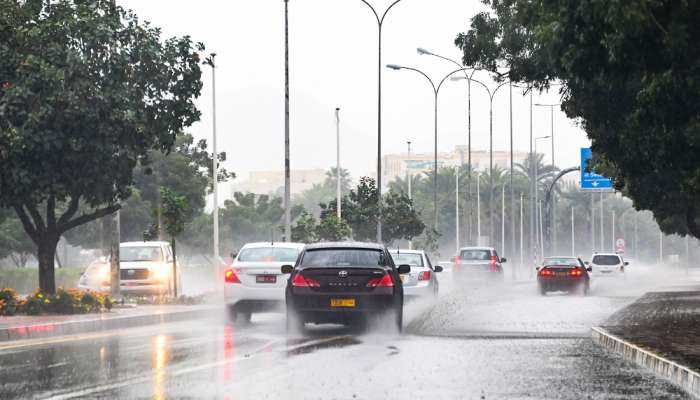The National Multi Hazard Early Warning Centre at the Civil Aviation Authority in Muscat has predicted an adverse weather condition starting at noon on Thursday, May 2nd. The precipitation is expected to affect several governorates in Oman, with rainfall ranging from 20mm to 80mm. Nasser Said Al Ismaili, Director of the Department of Forecasts and Early Warning System, mentioned that even northern governorates will be moderately impacted by the weather.
According to Al Ismaili, the rainfall will start on the evening of May 1st and continue until the day after in mountainous areas such as South A’Sharqiyah, North A’Sharqiyah, Al Wusta, Hajar Mountains, and Dhofar Governorate. Clouds have already been observed over Dhofar Governorate, and there is a possibility of sporadic thunderstorms causing valleys to flow in the area. Residents in affected areas are advised to take necessary precautions and stay updated with the latest weather forecasts.
The upcoming adverse weather conditions highlight the importance of being prepared and aware of potential risks. With the forecasted rainfall and thunderstorms, there is a possibility of flash floods in areas prone to such disasters. It is crucial for residents to secure their homes, avoid driving through flooded roads, and stay informed through official channels for any emergency updates.
Government agencies such as the Civil Aviation Authority are working diligently to provide accurate forecasts and early warnings to ensure the safety of the public. The efforts of the National Multi Hazard Early Warning Centre in forecasting and analyzing weather patterns play a crucial role in mitigating the impact of adverse weather conditions. By following the advice and guidelines provided by these agencies, residents can better prepare and respond to emergencies.
In light of the predicted heavy rainfall, it is important for residents in affected areas to be mindful of potential risks and to take necessary precautions. This includes securing loose items, avoiding low-lying areas, and being prepared for power outages. By staying informed and proactive, individuals can minimize the impact of adverse weather conditions on their safety and well-being.
As the adverse weather conditions approach, it is essential for individuals to prioritize their safety and that of their families. By following safety guidelines, monitoring weather updates, and staying informed, residents can better prepare for emergencies and respond effectively. The efforts of government agencies in providing early warnings and forecasts are invaluable in ensuring the well-being of the community during challenging weather events.







